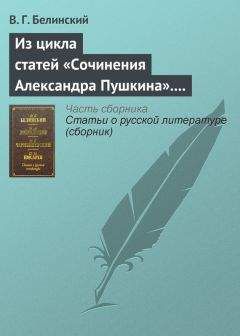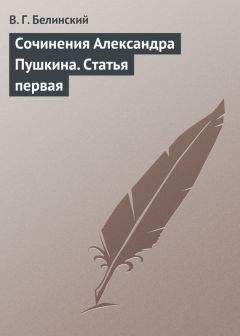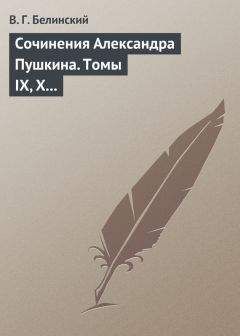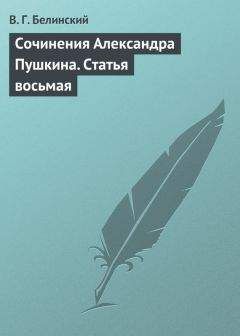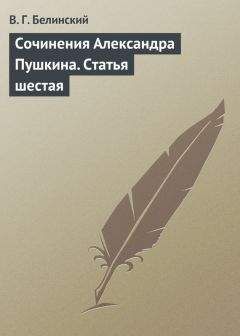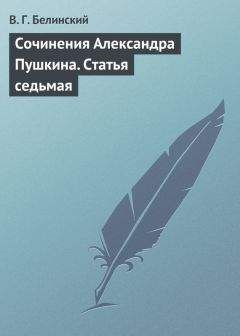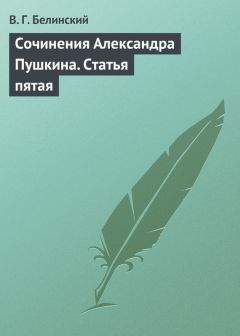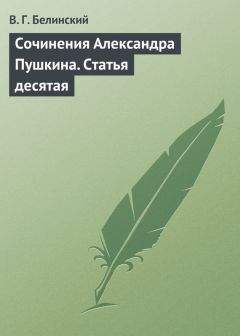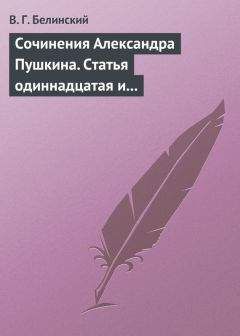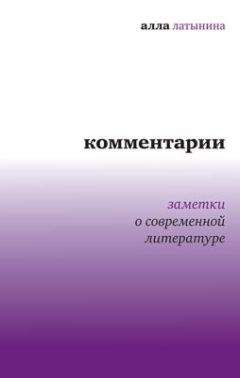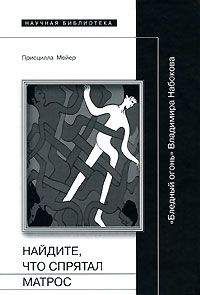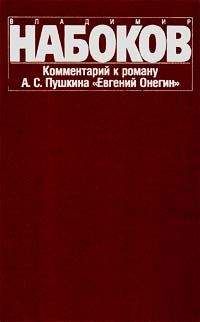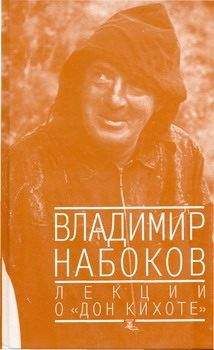Владимир Набоков - Комментарии к «Евгению Онегину» Александра Пушкина
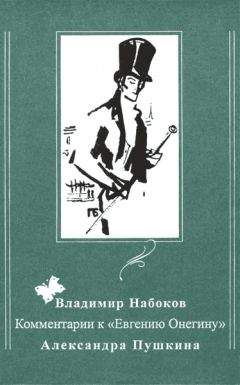
Скачивание начинается... Если скачивание не началось автоматически, пожалуйста нажмите на эту ссылку.
Жалоба
Напишите нам, и мы в срочном порядке примем меры.
Описание книги "Комментарии к «Евгению Онегину» Александра Пушкина"
Описание и краткое содержание "Комментарии к «Евгению Онегину» Александра Пушкина" читать бесплатно онлайн.
Комментарии В. В. Набокова освещают многообразие исторических, литературных и бытовых сторон романа. Книга является оригинальным произведением писателя в жанре научно-исторического комментария. Набоков обращается к «потаенным слоям» романа, прослеживает литературные влияния, связи «Евгения Онегина» с другими произведениями поэта, увлекательно повествует о тайнописи Пушкина.
Предназначена для широкого круга читателей и в первую очередь — для преподавателей и студентов гуманитарных вузов, а также для учителей и учащихся средней школы.
[XVIII]
Needful to me are other pictures:I like a sandy hillside slope,
before a small isba two rowans,
4 a wicket gate, a broken fence,
up in the sky gray clouds,
before the thrash barn heaps of straw,
and in the shelter of dense willows
8 a pond — the franchise of young ducks.
I'm fond now of the balalaika
and of the trepak's drunken stomping
before the threshold of the tavern;
12 now my ideal is a housewife,
my wishes, peace
and “pot of shchi but big myself.”
[XIX]
as I had dropped into the cattle yard —
Fie! Prosy divagations,
4 the Flemish School's variegated dross!
Was I like that when I was blooming?
Say, Fountain of Bahchisaray!
Were such the thoughts that to my mind
8 your endless purl suggested
when silently in front of you
Zaréma I imagined?...
Midst the sumptuous deserted halls
12 after the lapse of three years, in my tracks
in the same region wandering, Onegin
remembered me.
[XX]
There for a long time skies are clear.
There, stirring, an abundant trade
4 sets up its sails.
There all exhales, diffuses Europe,
all glitters with the South, and brindles
with live variety.
8 The tongue of golden Italy
resounds along the gay street where
walks the proud Slav,
Frenchman, Spaniard, Armenian,
12 and Greek, and the heavy Moldavian,
and the son of Egyptian soil,
the retired Corsair, Moralí.
[XXI]
our friend Tumanski has described,
but at the time with partial eyes
4 he gazed at it.
Upon arriving, he, like a true poet,
went off to roam with his lorgnette
alone above the sea; and then
8 with an enchanting pen
he glorified the gardens of Odessa.
All right — but there, in point of fact,
is a bare steppe around;
12 in a few places recent labor
has forced young boughs on sultry days
to give compulsory shade.
[XXII]
Odessa,” I had said.
I might have said “in muddy
4 Odessa” — and indeed would not have lied there either.
For five-six weeks a year
Odessa, by the will of stormy Zeus,
is flooded, is stopped up,
8 is in thick mud immersed.
Some two feet deep all houses are embedded.
Only on stilts does a pedestrian
dare ford the street. Chariots and people
12 sink in, get stuck; and hitched to droshkies
the ox, horns bent, replaces
the debile steed.
[XXIII]
and with a ringing pavement soon
the salvaged city will be covered
4 as with an armor of forged steel.
However, in this moist Odessa
there is another grave deficiency,
of — what would you think? Water.
8 Grievous exertions are required....
So what? This is not a great sorrow!
Particularly since wine is
imported free of duty.
12 But then the Southern sun, but then the sea...
What more, friends, could you want?
Blest climes!
[XXIV]
roar from the ship
than, down the steep shore running,
4 I would be on my way toward the sea.
Then, sitting with a glowing pipe,
enlivened by the briny wave,
like in his paradise a Moslem, coffee
8 with Oriental grounds I quaff.
I go out for a stroll. Already the benevolent
Casino's open: the clatter of cups
resounds there; on the balcony
12 the marker, half asleep, emerges
with a broom in his hands, and at the porch
two merchants have converged already.
[XXV]
All is alive now; here and there
they run, on business or not busy;
4 however, more on businesses.
The child of Calculation and of Venture,
the merchant goes to glance at ensigns,
to find out — are the skies
8 sending to him known sails?
What new wares have
entered today in quarantine?
Have the casks of expected wines arrived?
12> And how's the plague, and where the conflagrations,
and is not there some famine, war,
or novelty of a like kind?
[XXVI]
among the careful merchants,
expected only oysters
4 from Tsargrad's shores.
What news of oysters? They have come. O glee!
Off flies gluttonous juventy
to swallow from their sea shells
8 the plump, live cloisterers,
slightly asperged with lemon.
Noise, arguments; light wine
onto the table from the cellars
12 by complaisant Automne[2] is brought.
The hours fly by, and the grim bill
meantime invisibly augments.
[XXVII]
Time to the opera we sped:
there 'tis the ravishing Rossini,
4 darling of Europe, Orpheus.
To severe criticism not harking, he
is ever selfsame, ever new;
he pours out melodies, they effervesce,
8 they flow, they burn
like youthful kisses, all
in mollitude, in flames of love,
like the stream and the golden spurtles of Ay
12 starting to fizz; but, gentlemen,
is it permitted to compare
do-re-mi-sol to wine?
[XXVIII]
And what about the explorative lorgnette?
And the assignments in the wings?
4 The prima donna? The ballet?
And the loge where, in beauty shining,
a trader's young wife, vain
and languorous,
8 is by a crowd of thralls surrounded?
She lists and does not list
the cavatina, the entreaties,
the banter blent halfwise with flattery,
12 while in a corner naps behind her
her husband; wakes up to cry “Fuora!”; yawns,
and snores again.
[XXIX]
with noise the outfall hastes;
the crowd onto the square
4 runs by the gleam of lamps and stars.
The sons of fortunate Ausonia hum
a playful tune
involuntarily retained —
8 while we roar the recitative.
But it is late. Sleeps quietly
Odessa; and breathless and warm
is the mute night. The moon has risen,
12 a veil, diaphanously light,
enfolds the sky. All's silent;
only the Black Sea sounds.
[XXX]
Примечания
1
В позднейшем издании 1752 г., очевидно, отпечатанном в Амстердаме, появился подзаголовок: «или Гражданин мира».
2
Или на вельмож, которые забыли, что бедный поэт может иметь столь же благородное происхождение, как и они (см. коммент. к «Путешествию Онегина», XXXII).
3
В Сочинениях 1949 вместо этого: «И не заметила его».
4
В «Новостях литературы», приложении к «Русскому инвалиду», № 9, с. 173–76.
5
«Пушкинологические этюды» в сборнике «Звенья» (1935), V, 60–62.
6
Правильная форма, разумеется, «убогий», но поэты той поры нередко, чтобы добиться более благообразного старомодного звучания, а также из-за рифмы (см. также главу Вторую, VI, 5–6), заменяли безударное «и» на «о», звучавшее более как «ы» в окончаниях прилагательных мужского рода.
7
«Жизнь Джорджа Браммела, эскв., прозванного „Красавчик Браммел“» (Лондон, 1844), I, 58–59.
8
Часть I содержит «Мемуары»; часть II — «Религия и уединение», последнее — благочестивое рассуждение, более или менее совпадающее с фрагментарным первым изданием, озаглавленным «Артюр, или Религия и уединение, третья часть» (Руан и Париж, 1834).
9
(Париж, 1799–1805); II, 140–41; (Париж, 1825–26), III, 190.
10
Буколические персонажи Феокрита (примеч. пер.).
Подписывайтесь на наши страницы в социальных сетях.
Будьте в курсе последних книжных новинок, комментируйте, обсуждайте. Мы ждём Вас!
Похожие книги на "Комментарии к «Евгению Онегину» Александра Пушкина"
Книги похожие на "Комментарии к «Евгению Онегину» Александра Пушкина" читать онлайн или скачать бесплатно полные версии.
Мы рекомендуем Вам зарегистрироваться либо войти на сайт под своим именем.
Отзывы о "Владимир Набоков - Комментарии к «Евгению Онегину» Александра Пушкина"
Отзывы читателей о книге "Комментарии к «Евгению Онегину» Александра Пушкина", комментарии и мнения людей о произведении.







